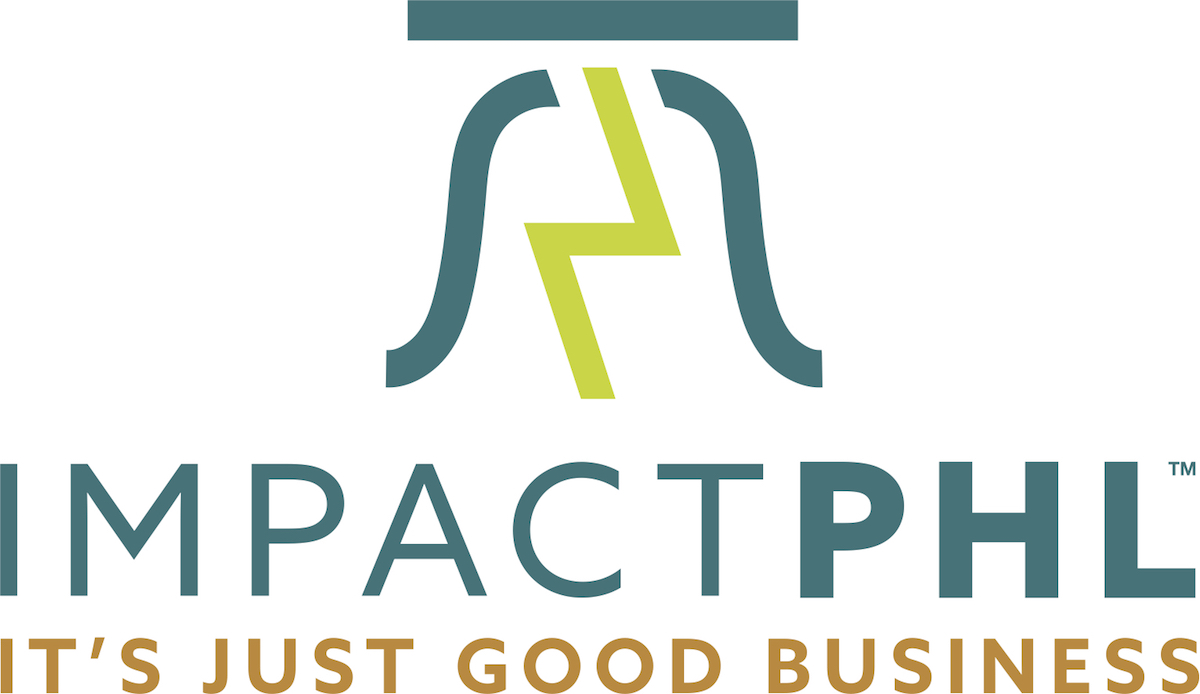
This essay was originally published via ImpactPHL Perspectives, a multi-part series exploring the many facets of the impact economy from the perspectives of its doers, movers, shakers and agents of change. This version has been edited for style.
Across the United States and in the Philadelphia region, minority businesses — especially those that are owned by African Americans or Indigenous people — often lack the flexible capital that comes from generational and family wealth. The typical Black American household, for example, has one-tenth the wealth of the typical white family.
Consequently, for minority businesses in the startup or early stages of business growth, the lack of access to family and friends’ capital can permanently stunt an entrepreneur’s ability to succeed. Such barriers create ripple effects throughout our region: Philadelphia’s Black community is 43% of the city’s population yet owns just 2.5% of businesses with employees; local Black and brown businesses represent less than 12% of local institutional spending.
Through the Economy League of Greater Philadelphia’s work via the PAGE (Philadelphia Anchors for Growth & Equity) initiative — which connects local Black and Brown-owned businesses to opportunities in institutional supply chains — we’ve become acutely aware of the ways that capital access impedes businesses and broader regional equity. In listening to our community, we’ve become more intentional about connecting and creating solutions that can work toward bridging the capital and wealth gap.
Market alternatives to personal or family wealth
Many entrepreneurs of color face the absence of a market-driven replacement for personal or family wealth. People who have been historically and systemically excluded from the opportunity to generate wealth don’t have an alternative source of assets or investment capital that allows them to compete fairly, if at all. Instead, many entrepreneurs must take on heavy unsecured or predatory debt to, at minimum, sustain their businesses, further, grow their businesses, and take advantage of capital-intensive opportunities.
As a result, minority businesses either fail to reach their full potential or cease to exist at all, despite working just as hard as their peers. They are often earning revenue just to pay off high-interest debt, never getting to profitability. Regional markets suffer from the reduced competition as important ideas, goods, and services never make it to market.
While this problem isn’t difficult to identify, there is no easy fix for generations of disinvestment and devaluation that have caused the wealth gap or the systemic barriers to capital that persist for minority-owned businesses today. CDFIs and other financial institutions provide loans that can help deal with early-stage capital needs, but such loans can be costly and can’t always compete with the flexibility of family capital. Impact investing, while an important part of the capital access ecosystem, usually requires that a business has already overcome many early hurdles where family capital would be valuable. Additionally, investing of this sort often results in business owners diluting their stake in the enterprise, which can tax first-generation entrepreneurs whose intention is to create stability and wealth for future generations.
Despite the challenges, communities and business support organizations are developing innovative ways to support entrepreneurs that mimic friends and family capital:
- The Kensington Corridor Trust purchases commercial property in North Philadelphia’s Kensington neighborhood and then rents it to entrepreneurs, bringing valuable assets into the community at an affordable rate. These low costs give the entrepreneurs space to learn and grow and invest in marketing while the business is young.
- Boston Ujima Project uses a democratic model to invest in businesses and provide them with technical support. This builds community buy-in and helps the business to succeed in a somewhat stable environment with many supporters.
- Founders First CDC gives businesses grant capital while also providing them with a scholarship for an accelerator program. The company also offers capital solutions that address the needs and growth strategies of its clients, such as revenue-based financing.
Prototyping the PAGE Hurdle Fund
Thanks to an Economic Development Administration Build to Scale grant, the Economy League, ImpactPHL and Investors Circle partnered to create PAGE Capital, a leg of the PAGE program that seeks to connect Black and brown businesses with aligned capital as they grow to take on new and larger institutional contracts.
Early observation and learning from PAGE Capital was that many businesses were positioned to grow, but faced a barrier that kept them from doing new or increased business with large institutions like PAGE’s partners — Drexel University, Penn Medicine, Jefferson University and more. In scenarios where flexible capital could be a solution, our hope was to create a low-barrier offering that could help businesses bridge the gap between opportunity and revenue creation.
In 2022, we launched the PAGE Hurdle Fund with $125,000 in funds provided by local Investors Circle members as a prototype solution. A Hurdle Fund grant takes the place of family wealth by providing businesses with up to $25,000 to pay for things like insurance, equipment or certification. The independent Hurdle Fund grant committee has approved two awards to date and the goal is to deploy the full fund by the end of the year. If a business is interested in learning more and applying, they can apply directly below, or reach out to Melina Harris (mharris@economyleauge.org) to receive more information:
Apply to the Hurdle FundThe first Hurdle Fund grantee was a small Black-owned restaurant being passed down from a father to a daughter-granddaughter team. They were in the process of refocusing the business by building their catering clientele when disaster struck: Their pie machine broke, and no one in their network had the $9,000 it would take to purchase a new one. Without this machine, they would be unable to fulfill their contracts with clients, including major Philadelphia colleges.
For white families whose average household wealth is approximately $190,000, this issue could have been resolved with savings, retirement funds or a home equity loan. For a Black household whose average wealth is $25,000, the ability to cover this cost is likely overwhelmingly burdensome, if not flat-out impossible. In addition, a Black-owned business is less likely to get a bank loan on favorable terms due to a lack of established assets and well-established institutional and personal bias found within traditional underwriting methodologies and even nouveau automated technologies.
The Hurdle Fund quickly approved a grant and the machine was purchased, allowing the business to continue servicing its catering clients. This type of flexible capital is a constant need for minority businesses, and there are still very few sources of flexible grant capital in the Philadelphia region.
###
Designing just and equitable solutions that address capital access for minority-owned businesses will never be a simple feat. But if we want to build a competitive, sustainable and diverse marketplace, we need to provide support to businesses that go beyond the basic instruments of debt and equity. This support could come in many forms. Young entrepreneurs especially might benefit from affordable housing, for example, while they bootstrap to get their business off the ground. An early-stage grant — like those provided by the PAGE Hurdle Fund — can help a small business make an effective strategic investment. Support could come in the form of a low-cost space, equipment, or expertise.
No matter how it is designed, a blended approach is necessary if we truly want to create equitable opportunities for minority businesses to start, grow, and thrive in Philadelphia and beyond.
Join the conversation!
Find news, events, jobs and people who share your interests on Technical.ly's open community Slack

Philly daily roundup: Women's health startup wins pitch; $204M for internet access; 'GamingWalls' for sports venues

Philly daily roundup: East Market coworking; Temple's $2.5M engineering donation; WITS spring summit

Philly daily roundup: Jason Bannon leaves Ben Franklin; $26M for narcolepsy treatment; Philly Tech Calendar turns one

